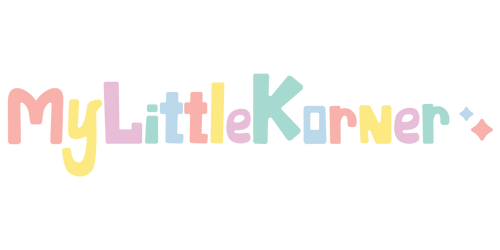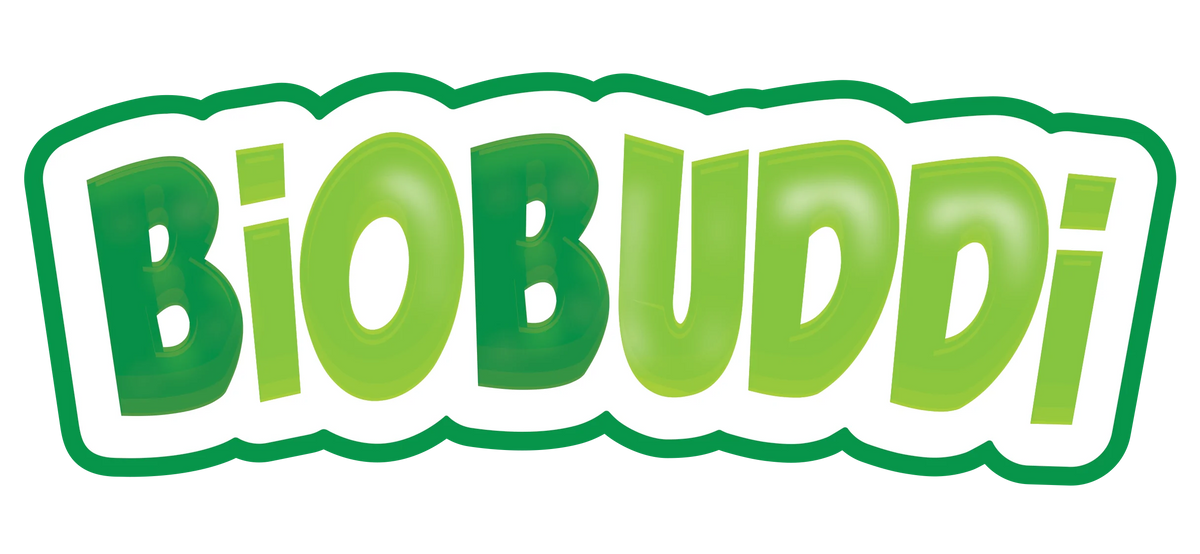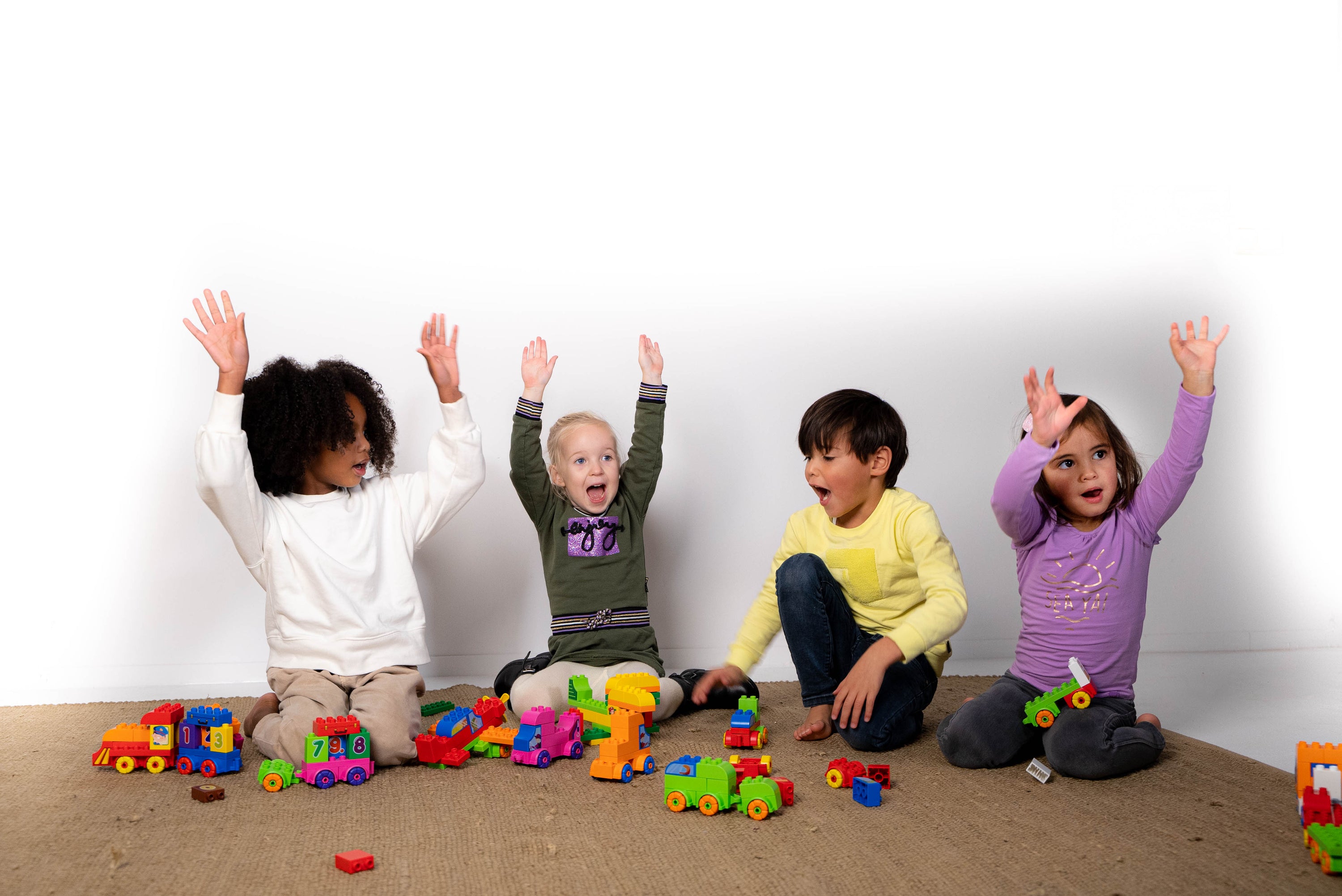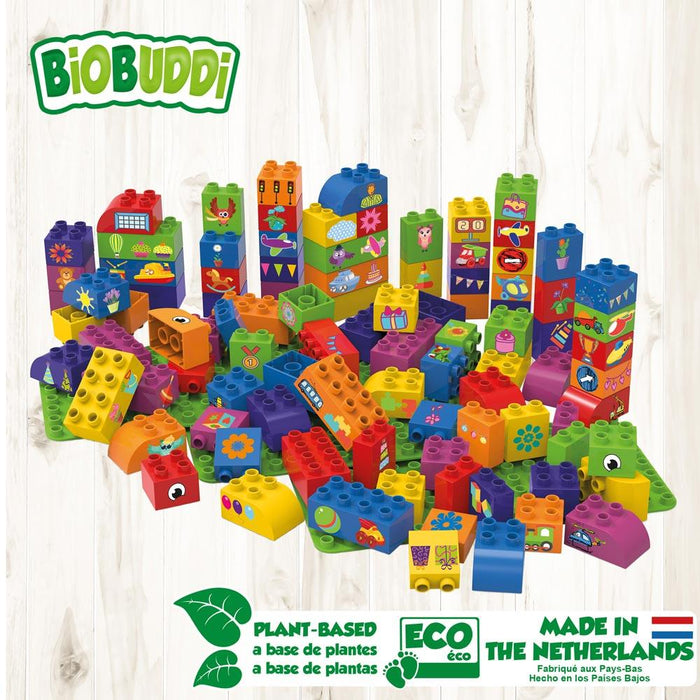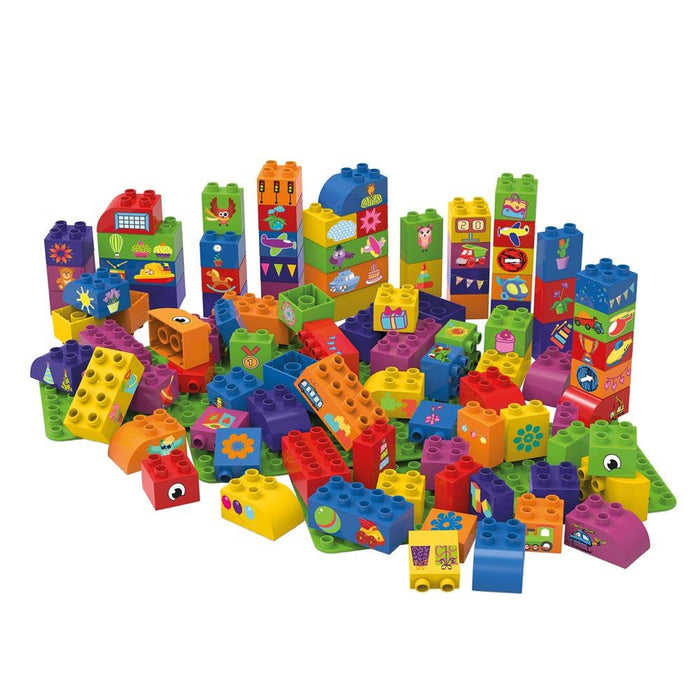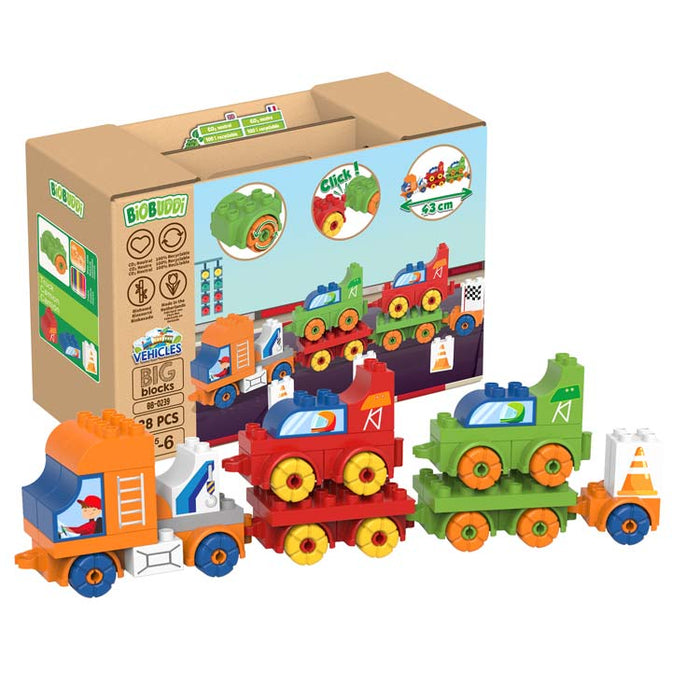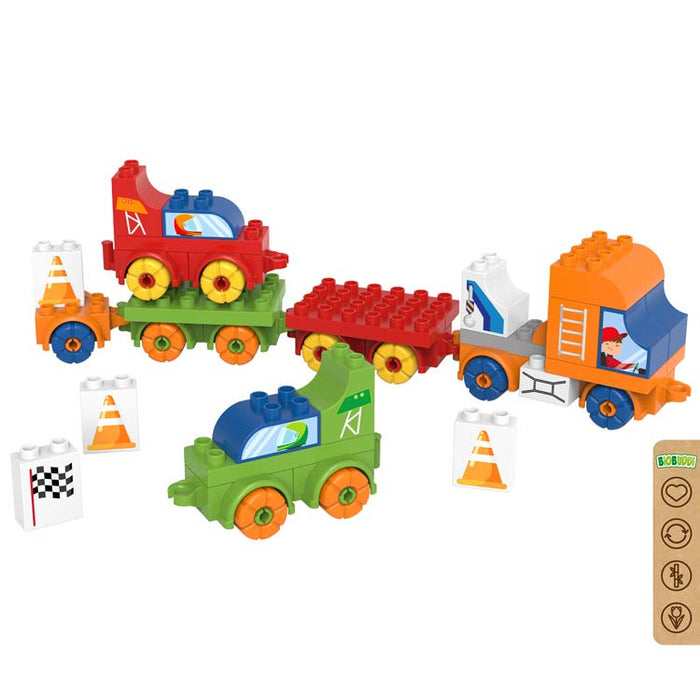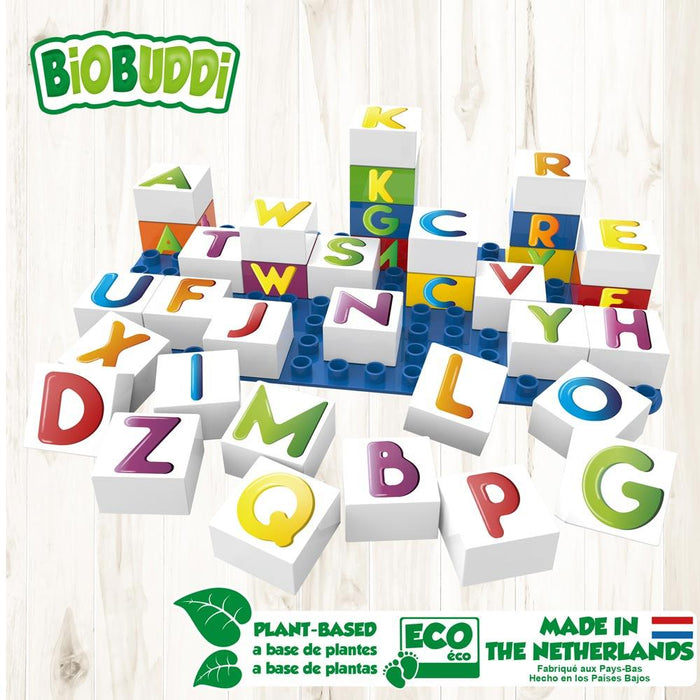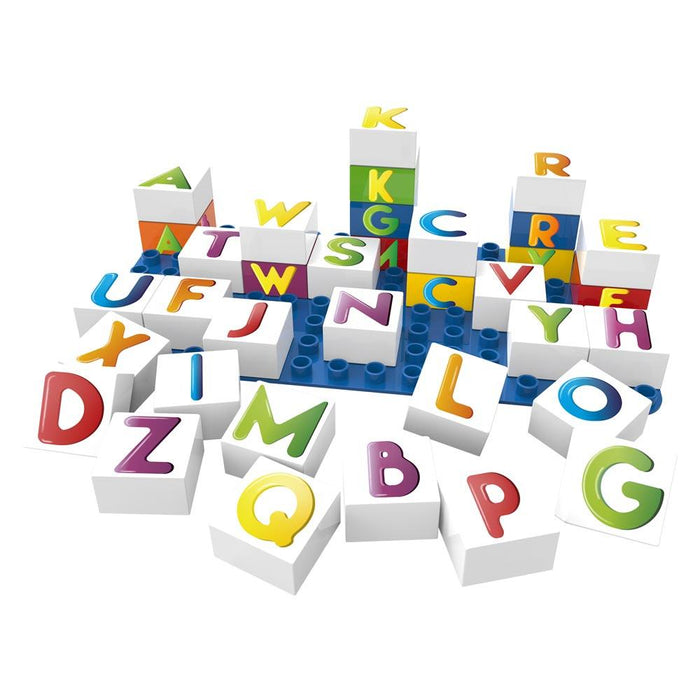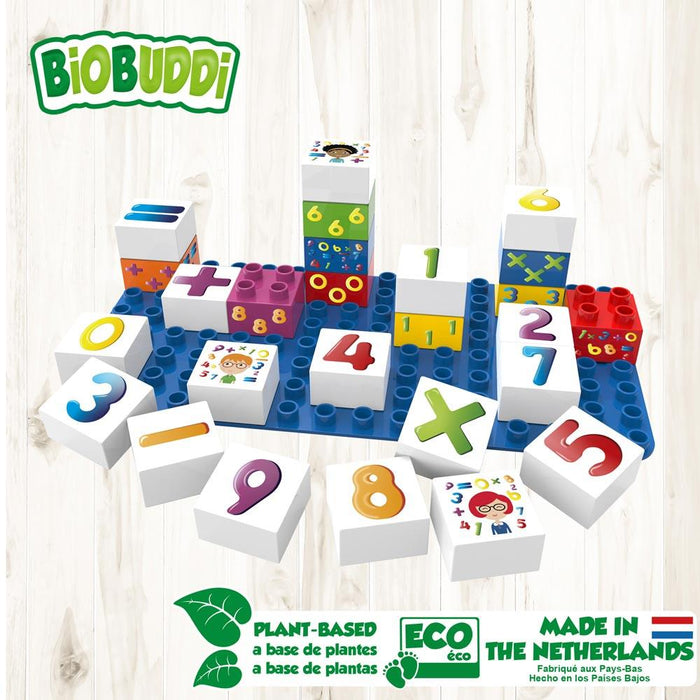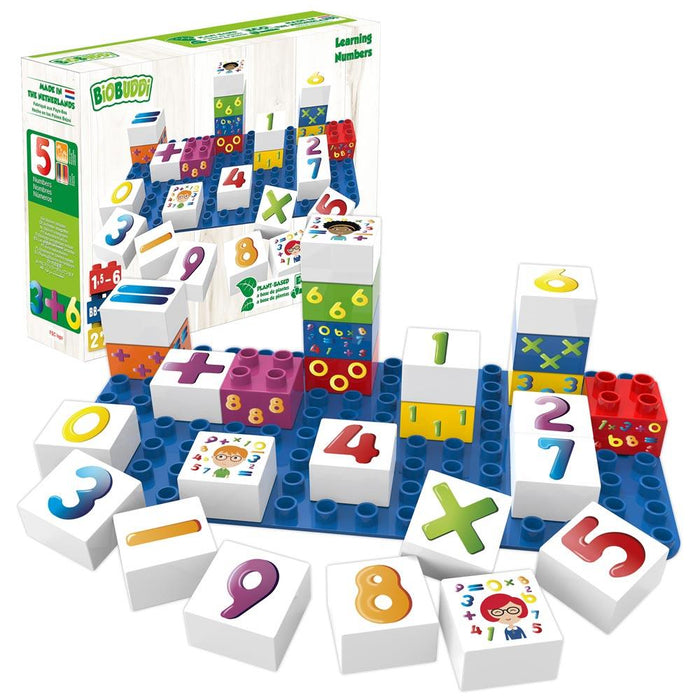BiOBUDDi Learning Fruits
- Regular
- $249
- Sale
- $249
- Regular
- $249
- Unit Price
- per
What did you eat this morning for breakfast? An apple or a banana?
A healthy choice, but there are more types of fruits and vegetables from around the world. Toddlers and preschoolers will learn different types of fruits and vegetables with the BiOBUDDi Learning food set. In addition, the set will encourage kids to eat healthy food.
The environmentally friendly blocks from Learning food are produced in the Netherlands. The blocks are made from the remains of sugarcane plants instead of oil. Therefore, the blocks are recyclable, bio-based and a breakthrough on the toy market. The building blocks are safe, educational and encourage your child to develop creative, cognitive, and motor skills. It is possible to decorate the blocks with different types of food, such as fruits and vegetables, to stimulate toddlers and preschoolers to eat healthy food. Playing with BiOBUDDi provides so much more than a few minutes of fun! Kids practice lasting life skills through play and creativity. With this set, you as a parent find out how toy blocks support your little one's developmental milestones, like learning colors, shapes, and a lot more.
BiOBUDDi products are safe, educational, and safe. Combine this set with the Learning letters or Learning numbers set to stimulate your child's development.
Specifications:
Contains 26 coloured building blocks.
One baseplate.
Sticker sheets.
Multiple manuals.
Age: 1,5 – 6
All the BiOBUDDi toys are made in the Netherlands.

